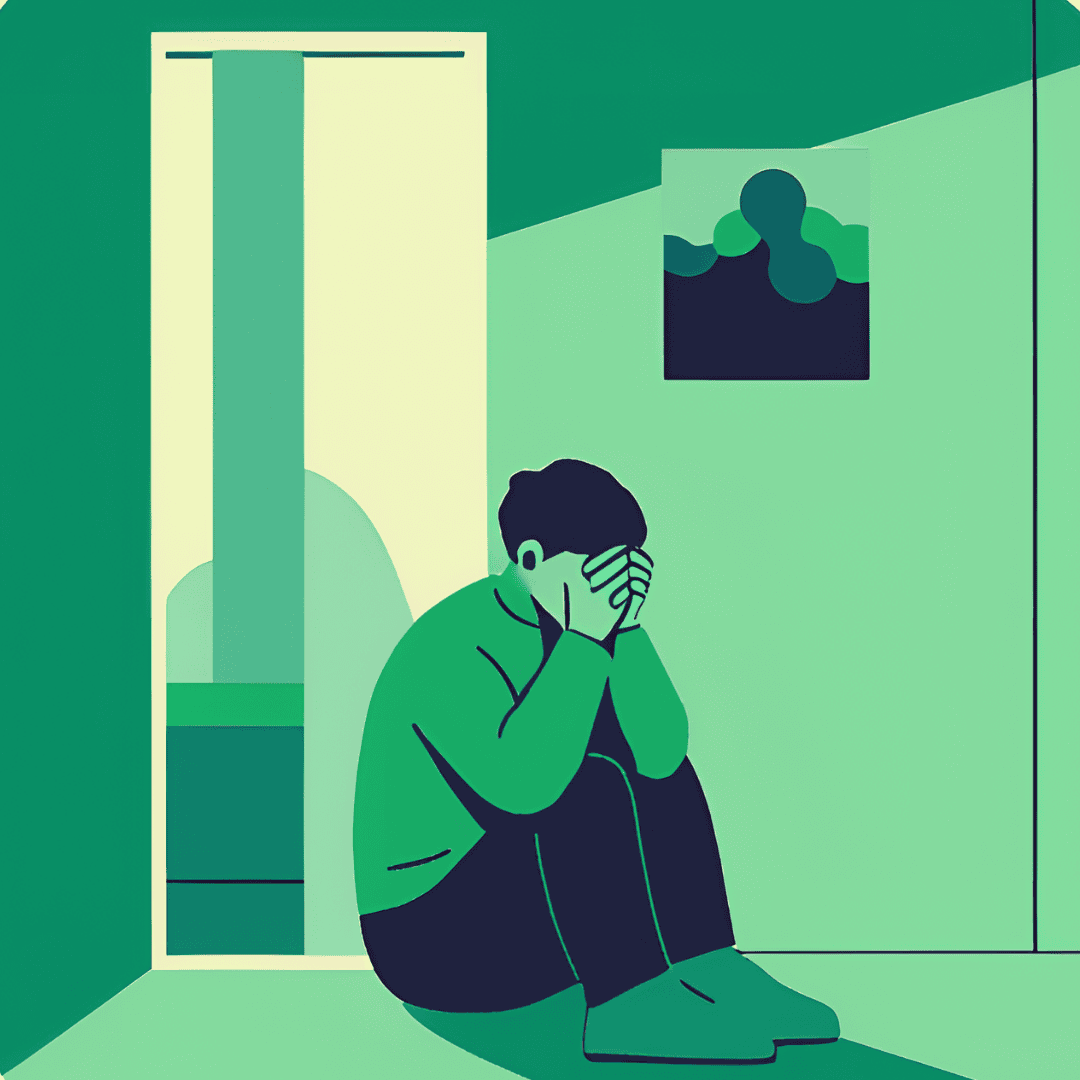
When You Don’t Care About Anything – How to Cope with Apathy
Are you feeling uninterested, indifferent, and unmotivated in your schoolwork, professional life, hobbies, or things that used to interest you for a prolonged period of time? You may be experiencing apathy, which is a lack of interest and motivation in achieving your goals. It is also characterized by a lack of emotion and feelings of indifference. People young and old can experience feeling unmotivated for anything in life at any point in their lives. What can we do to cope with apathy, especially if these feelings have persisted?
Signs that you may be experiencing apathy:
If you are experiencing any of these below, you may be experiencing apathy. Of course we all experience this every now and then (especially if we’re exhausted) but you should seek professional help if this persists for more than a couple weeks.
– Lack of effort or energy to complete everyday tasks.
– Having no sense of purpose or goal in life.
– Feeling no emotions when good or bad things happen.
– Withdrawing from work / responsibilities, hobbies, or spending time with loved ones.
– Having no desire to meet new people, go to new places, learn new things.
– Feeling indifferent to one’s own problems.
– Dependence on others to accomplish tasks or plan activities.
The difference between apathy and depression:
Apathy can resemble depression but people experiencing apathy do not generally have feelings of low mood, persistent sadness, and feelings of worthlessness or hopelessness that those with depression experience. However, a person can experience both apathy and depression at the same time and apathy itself can be a symptom of depression.
What is the cause of apathy and lack of movation?:
Apathy and lack of motivation can be caused by many different things and that is why it is important to consult a professional when signs of apathy and lack of motivation persist for more than a couple weeks:
– Underlying medical conditions. Apathy is a known symptom of a number of psychiatric and neurological conditions such as Alzheimers, schizophrenia, and chronic depression. For example, people with Alzheimers suffer from damage in their frontal lobe of the brain which also controls feelings of motivation and planning tasks.
– Major life events. A major life event such as a divorce or loss of a long-term job may cause someone to feel indifferent. People who experience a lack of control in their lives, and a perceived inability to take back control, may give into feelings of indifference and apathy.
– PTSD. People who suffer traumatic events such as war, environmental catastrophes, abuse, can develop apathy as a way to shield themselves from further distress.
– Depression. As mentioned before, apathy can be a symptom of depression. Those feeling incompetent, worthless, and pessimistic towards oneself may soon move on from feeling sorry for oneself to feeling detached, unmotivated, and indifferent to what life throws at them.
– Prolonged boredom. Those who get caught up in their daily routine of their life can lose sight of their dreams. They feel stuck in their lives but also feel a sense that they cannot do anything about it and give way to hopelessness then indifference.
What to do if you or a loved one is exhibiting signs of apathy and indifference:
First and foremost, make sure it’s not due to some underlying medical condition especially if these feelings have been persisting for more than a couple weeks. As mentioned before, apathy can be a symptom of various psychological and neurological conditions such as Alzheimers, schizophrenia, and chronic depression.
Here are some other strategies to cope with apathy and lack of motivation in one’s life:
– Try and figure out what is causing this apathy. Can you pinpoint when you started feeling this way? Was it shortly after a major life moment such as a change / loss in jobs, a relocation to a new city, or a divorce? Or is it because you simply feel bored and stuck in your routine? Determine the underlying issue and push yourself (even if it may be difficult) to approach it with anything other than apathy. Think about action items and solutions. Ask yourself what is the easiest and most feasible action that could make your feelings and situation a little better? Is it a weekend trip to somewhere new? Trying a new hobby or activity like a cooking class? Or even signing up for a consultation with a therapist? You know that something isn’t working – so try experimenting with new solutions.
– Push yourself to spend time with others. You may feel too disconnected or have nothing to say to someone so you stop trying to engage or do anything with others. However it may be useful to get out of your own headspace for a little bit by spending some time with a loved one. It doesn’t have to be anything too involved like going out to dinner 1:1 and having to be engaged in a conversation for hours. It can simply be going to watch a new movie with a friend or cooking a simple meal for your spouse.
– Help others and the community. Perhaps you are feeling a little bored at home, with your friends, or with your work life. It may be useful to get out there and interact with strangers in a productive and healthy way. For example, volunteering at your local food bank or delivering food to senior citizens can help you feel a little bit more engaged with others and caring about something.
– Take care of your physical well-being. It surely can be difficult to take care of yourself and do simple tasks when you’re feeling apathetic – but it is crucial to take care of your physical well-being especially when you are feeling this way. Exercising more regularly can help boost those endorphins and give you more energy to engage with others and accomplish daily tasks. Same goes for getting enough sleep and making sure to have a healthy and balanced diet. If you can’t motivate yourself to get to the gym, at least try and move your body a bit more. Get outside and go for a walk in nature, or walk instead of driving to the grocery store if it’s not too far. Take the steps instead of the elevator. Find ways to move your body at least 15-30 minutes every other day.
– Think about all the goals and dreams you had as a child. You were not always apathetic. We all have had our dreams, goals, desires. Write down all the goals and dreams you have had in the past. Among them, what is one goal that you can pursue right now? Choose one and go after it. Don’t think too much about it and it doesn’t have to be anything complex. Make it simple and fun like learning a new language, or learning how to do the tango. You don’t have to be too intense about it and you can always change course later if you find you don’t like it – it just has to be something that will pull yourself out of the apathetic mindset.
– See a professional therapist. If none of these solutions are helping you and you’re unable to escape your apathy, there may be underlying issues to work through. It will be useful to seek help from a professional therapist who can help work through any complex issues you may not be seeing.
Apathy in our spiritual lives:
Apathy can impact our spiritual lives and our relationship with Christ as well. There can be moments in our spiritual lives where we are feeling so close to God and feeling so passionate about our relationship with Him, but then moments when we don’t feel much at all. We know in our minds that we need to read the Bible, pray, have fellowship with others, go to church, volunteer – but our hearts seem to not be fully there. This means we may be spiritually apathetic. What to do when we are feeling apathetic in our relationship with Christ, the most important relationship we have?
Overcoming apathy in our spiritual lives:
Revelations 3:16: But since you are like lukewarm water, neither hot nor cold, I will spit you out of my mouth!
Hosea 13:6: But when they had grazed, they became full, they were filled, and their heart was lifted up; therefore they forgot me.
The Bible makes it very clear that apathy towards God, the Gospel, and His promises is not tolerated by Him. Famous Romanian-American writer, Nobel Laureate, and Holocaust survivor Elie Wiesel once said that the opposite of love is not hatred, rather it is indifference. The opposite of faith is not heresy, it is indifference.
If you hate something, at least you think about it and acknowledge its existence. If you feel indifferent towards something, it is invisible to you. You don’t find yourself thinking about it and even forget its existence. Apathy therefore is a dangerous thing when it comes to your relationship with God. As a Christian, if you find yourself sliding into spiritual apathy, you are wise to address it and get rid of it.
What can we do to shake ourselves out of apathy and indifference and remember God’s love and promise for us?
– Identify when you started to lose your enjoyment of God’s love and grace. It is important to ask yourself and understand when exactly these feelings of apathy started happening. Is it because you were severely disappointed by some major life event and therefore disappointed with God? Did you make a mistake or did something that goes against your morals and cannot face God? It is important to identify where in your relationship with Christ things started to go south. Then go to God and confess your feelings of apathy with the hope that the desire to grow again will spark.
– Confirm how God loves you and affirm your hunger for Christ. Remember and think back to the time when you felt Christ’s presence close to you, and know that this state of closeness with Him can be re-experienced. Affirm your belief in Christ and remember the sacrifice He made for our sins. Continue to seek assurance that He is near through prayer and the Word (Bible), along with seeking fellowship at church.
– Remember what you are thankful for. We become apathetic when we take for granted certain things. We cannot take Christ’s love and blessings for granted. Make a list of all the blessings in life that God has bestowed upon us. Is it your family? Your job and financial security? The health of you and your loved ones? The beautiful trip you took last summer? Make a list of these, and also remember the most important gift of all: the sacrifice that he made so we could enjoy eternal life.
You can watch the accompanying Anchor of Hope video here.
Enjoyed our blogpost? Subscribe to our newsletter for more resources on mental health and integrating the Gospel message in your healing journey.
If you found our resources useful, please consider donating to Oak Health Foundation, which is a 501(3)c nonprofit dedicated to providing resources regarding holistic mental healthcare and subsidized treatment for those in need.




